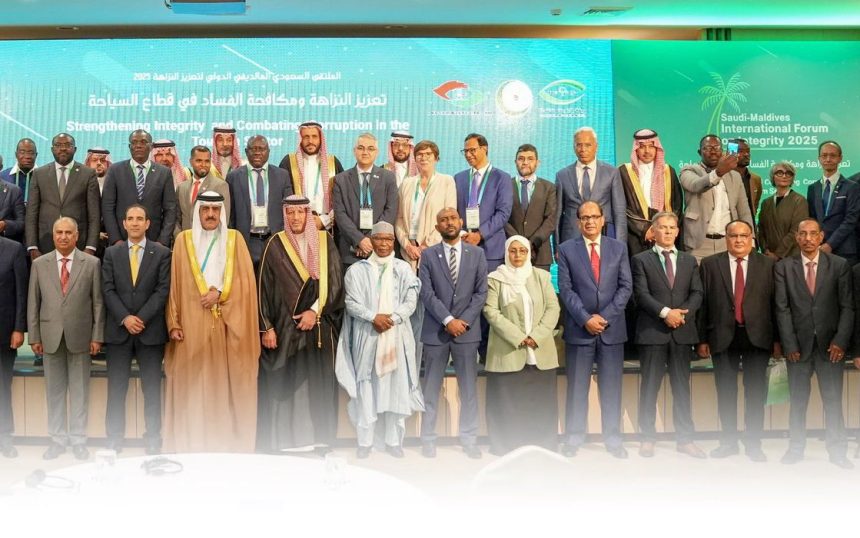In a landmark initiative to fortify ethical standards in global tourism, the Saudi-Maldives International Forum on Integrity convened over 190 delegates from more than 50 nations in Malé on May 6–7, 2025. The forum culminated in the adoption of a comprehensive framework aimed at combating corruption within the tourism sector.
A Collaborative Effort for Ethical Tourism
Jointly organized by Saudi Arabia’s Oversight and Anti-Corruption Authority (Nazaha) and the Maldives’ Anti-Corruption Commission (ACC), the forum brought together senior officials, industry experts, and representatives from international organizations. The primary focus was to develop strategies that enhance integrity, transparency, and accountability within the tourism industry—a sector vital to economic growth and cultural exchange in many OIC member states.
High-Level Principles: A Blueprint for Reform
The forum introduced nine High-Level Principles designed to guide OIC countries in strengthening their tourism sectors against corruption. These principles emphasize:
- Enhancing legal and regulatory frameworks to prevent corruption and empower oversight bodies.
- Strengthening international cooperation, including asset recovery and cross-border enforcement.
- Leveraging Information and Communication Technologies (ICT) to boost transparency and citizen engagement.
- Ensuring integrity in procurement practices within tourism projects.
- Promoting sustainable tourism development through fair and environmentally responsible land management.
- Fostering integrity in public-private partnerships (PPPs) in the tourism industry.
- Monitoring and evaluating anti-corruption frameworks for continual improvement.
- Improving access to information and disclosure systems, including the identification of beneficial ownership.
- Enhancing stakeholder collaboration and reporting mechanisms, with protection for whistleblowers.
These principles align with Islamic values and international standards, including the United Nations Convention against Corruption (UNCAC) and the Sustainable Development Goals (SDGs).
Integration into OIC Policies
The adopted principles are set to be formally submitted to the upcoming Ministerial Meeting of the Organization of Islamic Cooperation (OIC). This move aims to encourage member states to align their national policies with these best practices, ensuring that tourism contributes to broader anti-corruption and development objectives.
Expert Insights and Future Outlook
Participants engaged in dynamic discussions, sharing insights and experiences to tackle corruption in tourism. The forum also highlighted the importance of international networks such as the UNODC’s GlobE Network and Interpol in supporting anti-corruption efforts.
As the tourism industry continues to be a significant driver of economic growth, the implementation of these principles marks a pivotal step towards fostering a more transparent and accountable global tourism sector.
*For more information, visit the official forum website: https://ifi.org.mv.*




